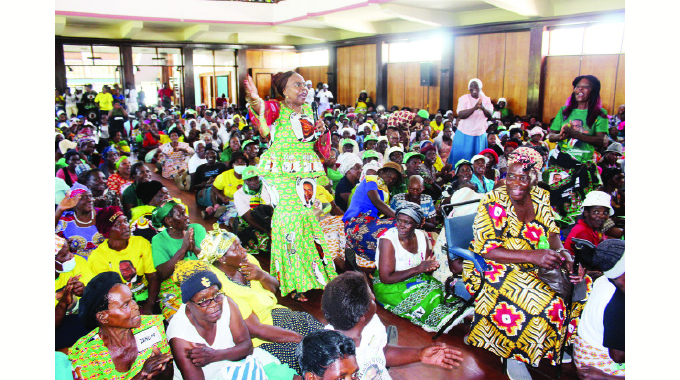DWT resuscitation gathers momentum

Business Reporter
David Whitehead Textile (DWT) expects to start receiving new equipment in the next two weeks as the resuscitation of the Chegutu-based former textile company gains traction.
Massive civil works are already underway at the Chegutu factory in preparation for the arrival of the new machines.
Preparatory works at the Kadoma plant, which produces yarn that feeds the Chegutu factory, are at an advanced stage.
About US$20 million will be invested in DWT after Agri Value Chain, a company with diverse interests in agro-processing, acquired the majority stake in the business over the last three years.
When this publication visited the Chegutu factory on Wednesday, there were a lot of construction activities in and outside the factory.
“The factory had stopped for a number of years,” operations manager Mr Tendai Chetse said in an interview.
“While we did brief (factory) runs, it was (on) intermittent (basis) because of lack of resources and the old machinery. With the coming in of the new investor, AVC, the thrust is to resuscitate David Whitehead and restore it to its glory.
“We are now in the process of replacing the old machinery, which was all over the factory with new machines. Currently, there are a lot of civil works that are happening in the factory.
“We are in the process of acquiring brand new weaving machines from Japan. The total machines to be acquired are 72 but we are initially getting 36.
“At the moment civil works are being done in the form of digging trenches for the air conditioning plant and thereafter the machines will be installed.”
Mr Chetse said every section of the plant will get new machinery and “most old machines are going to be replaced so at the end of the day, the factory will be almost brand new.”
On the factory services side, “we have done away with two boilers, which we have scrapped; we had four, and we are retaining two, a 14-tonne and a 100-tonne which we are currently refurbishing. In addition to that we are getting a brand new steam boiler and two thermic fluid boilers,” revealed Mr Chetse.
He added the company was also investing in power backup options to mitigate the impact of power cuts.
“We are experiencing a lot of power shortages, something that will potentially hinder our production.
“So we are taking corrective measures in the form of installing a solar power system as well as a generator to augment the ZESA power supply so that they will not be interrupted when we start production,” he said.
Technical director Narender Panwar said to ensure machines were protected from power supply variations, DWT was working on a system to ensure stable supplies to the factory.
“At the moment, we are very busy making the (factory) floor preparation, and power supply so that when the machines come, we don’t delay production. All the preparations must be done before the machines arrive,” said Mr Panwar in an interview.
Last year, President Mnangagwa, represented by Industry and Commerce Minister Dr Sekai Nzenza officially launched the DWT resuscitation programme.
The resuscitation programme involves the modernisation of the Chegutu and Kadoma factories into world-class operations.
The revival of the company will see the company initially producing 10 million meters of fabric per year.
Following the collapse of the textile industry, about 70 percent of lint, or processed cotton, is being exported due to a lack of capacity by the local spinners.
The current spinning capacity cannot absorb the 30 percent of lint earmarked for the local industry because of little room to further value-add along the textile value chain.
Prior to its closure, DWT was critical in the country’s industrial base, operating spinning and weaving facilities that produced various fabric grades for next-tier industries.
The Government, through the Ministry of Industry and Commerce is currently working on the Cotton to Clothing Strategy, in line with the National Development Strategy 1 (NDS1) thrust on moving the economy up the value chains.











Comments